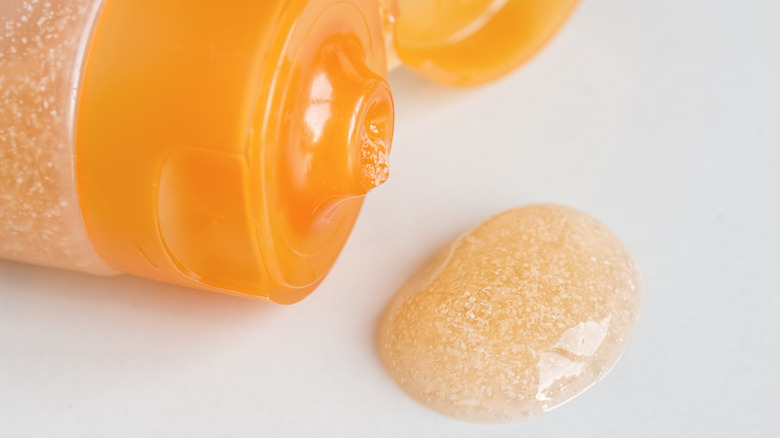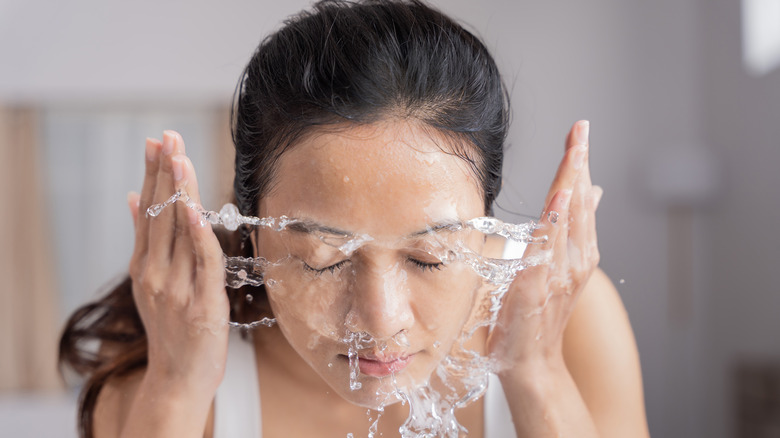Why You Should Never Use Face Washes With Microbeads
Microbeads, the itty-bitty plastic particles in products like face washes and body scrubs that work as exfoliators, were a popular cosmetics add-in in the 1990s, according to the International Joint Commission. But about 25 years later, former President Barack Obama signed into law the Microbead-Free Waters Act of 2015, which banned making, packing, and distributing cosmetic products containing plastic microbeads. The US isn't alone; other countries including the Netherlands, Canada, Australia, Italy, the UK, Sweden, and New Zealand have also banned microbeads in cosmetics, per the Organisation for Economic Co-operation and Development. So, why the ban?
Microbeads do work to exfoliate, but those tiny plastic balls are a big pollutant. "A single tube of cleanser can contain approximately 300,000 microbeads," Erica Vega, Lush Cosmetics training manager told Teen Vogue. After you use a product with microbeads in it, you rinse the microbeads into the water system because they're so tiny that they get through wastewater treatment and end up in lakes, rivers, and the ocean. Since they're plastic, they don't decompose, according to the National Oceanic and Atmospheric Administration.
And while the pieces are small, they can do some major damage. Scroll on to learn more.
Microbeads add to the tons of plastic that end up in the oceans each year
It may not seem like very much plastic can come from just one person washing their face with a microbead face wash, but the cumulative effect of using products with plastic microbeads adds to the 8 million tons of plastic that end up in our oceans every year, per the University of Bath. Those microbeads and other microplastics in the water will get eaten by fish who mistake it for food. Alarmingly enough, researchers discovered that "persistent organic pollutants accumulate in the tissue of fish that eat microbeads," according to Science Alert.
We may not have to say goodbye to microbeads forever, though. On the horizon could be biodegradable microbeads; in fact, researchers and engineers have created cellulose microbeads that will naturally break down, as explained by the University of Bath. But for now, it's best to avoid using products with microbeads in them. Per Beat the Microbead, check the ingredient labels in your face wash and avoid anything that includes any of the following: polyethylene (PE), polypropylene (PP), polymethyl methacrylate (PMMA), nylon (PA), polyurethane, or acrylates copolymer.
There are other better and more natural options to get a good exfoliation. DIY Natural suggests using coffee, almonds, sugar, oatmeal, and baking soda to exfoliate without causing serious pollution. Plus, as the website states, "the best exfoliators are all-natural" and can save you some coin at checkout.

